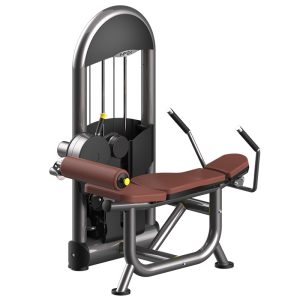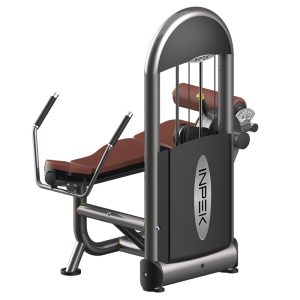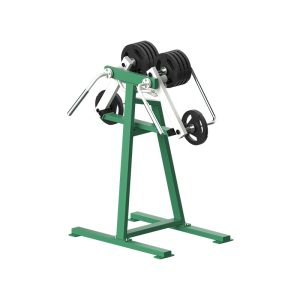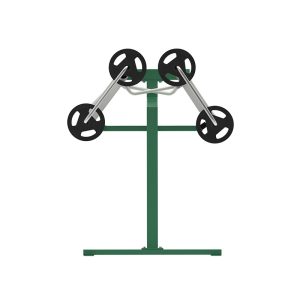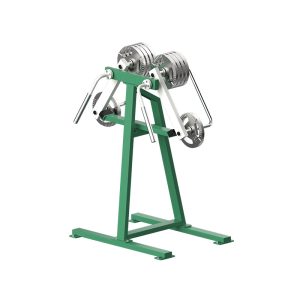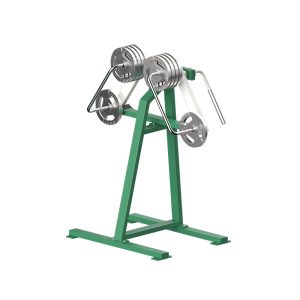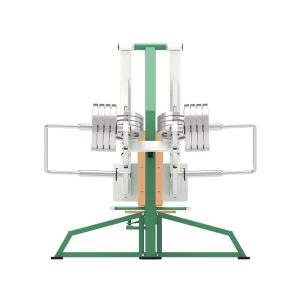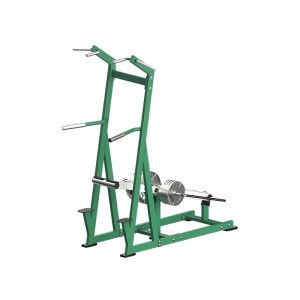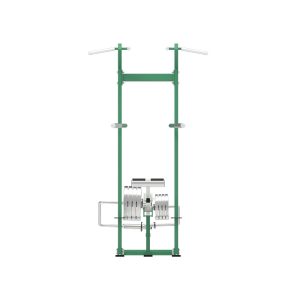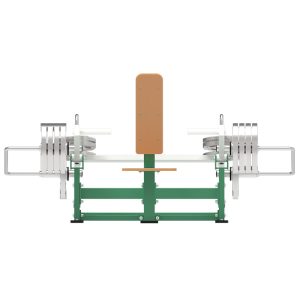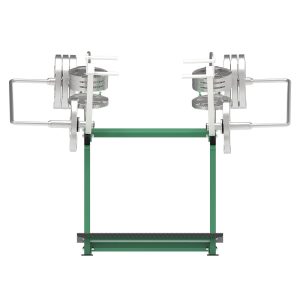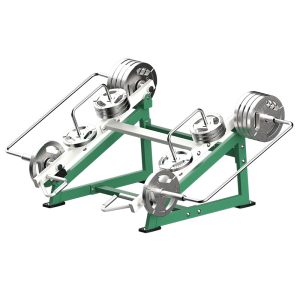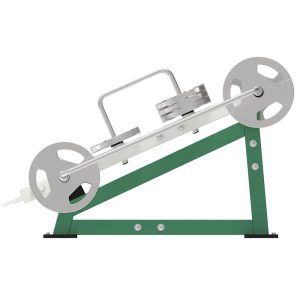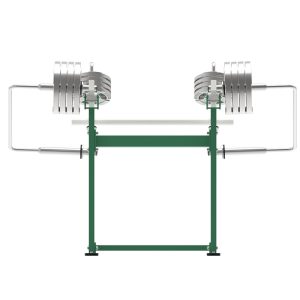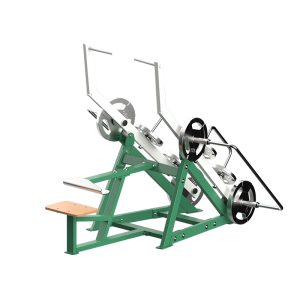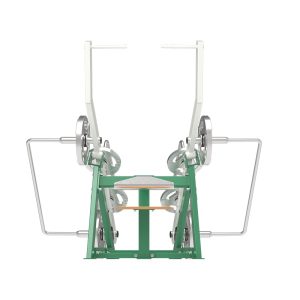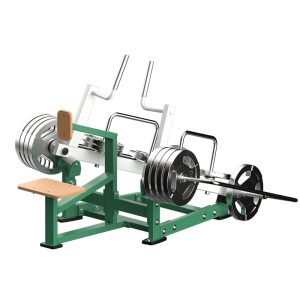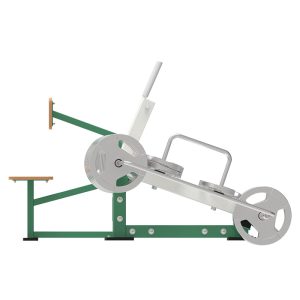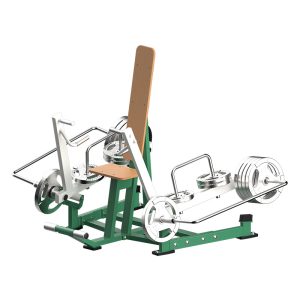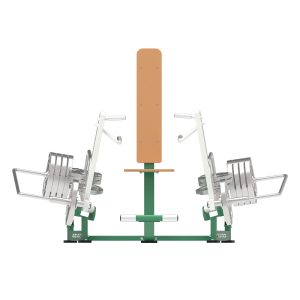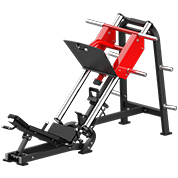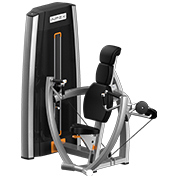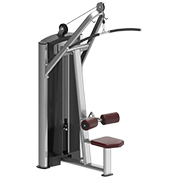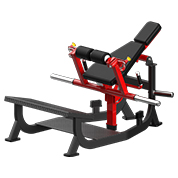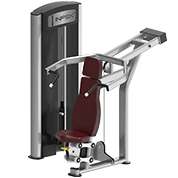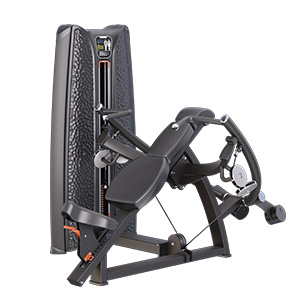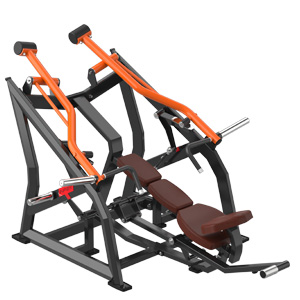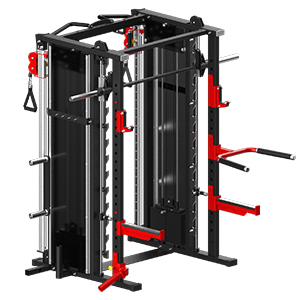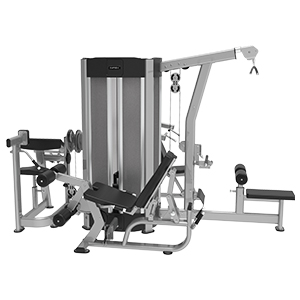Arm Curl Machine Supplier - Inpek Fitness
- Home
- /
- Arm curl machines
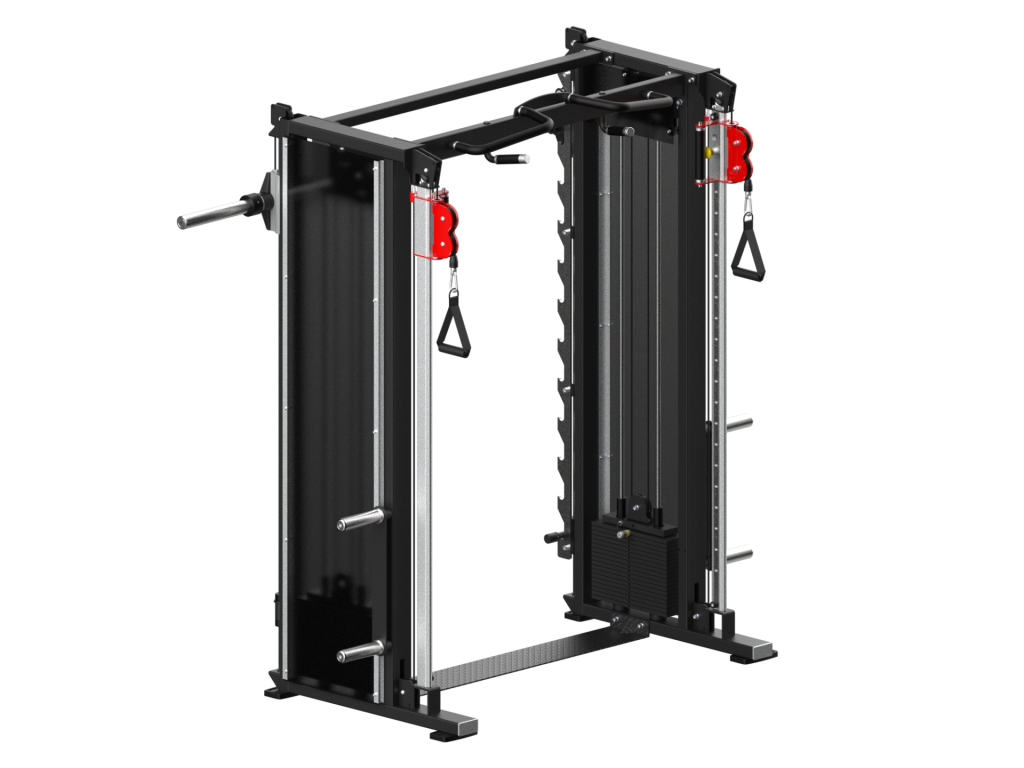
Built for precision, power, and comfort, arm curl machines offer the ideal solution for sculpting chiseled, toned arms. Fitting users of all sizes with an adjustable seat height and incline pads to ensure proper upper arm stability, our machines provide a comfortable and effective workout for everyone, allowing for optimal stability and ensuring proper form while isolating the biceps for maximum muscle activation. With the ability to curl the arms independently, users can enhance symmetry and control for superior results. Whether you prefer standard, incline, or preacher curls, our versatile machines support a variety of arm curl types to suit your training preferences. The right way to practice arm curls is made simple with our intuitive designs that guide proper form and posture for optimal results.
Whether your goal is biceps, triceps, or forearms, our comprehensive arm curl machine selection caters to all fitness levels and training needs. Made with commercial-grade materials, our equipment is built to last and perform, ensuring a safe and effective workout experience. And with our commitment to service excellence, we offer quick response and expert support to help you achieve your fitness goals.

How to Use Arm Curl Machines Correctly
The arm curl machine is a great tool for effectively isolating and strengthening the biceps while reducing strain on other muscle groups. Proper usage ensures maximum muscle engagement and minimizes the risk of injury. Below is a detailed guide on how to use the arm curl machine correctly, including correct posture, movement techniques, variations, and common mistakes to avoid.
Correct Posture and Steps
Maintaining the correct posture and following proper movement mechanics are essential for getting the most out of the arm curl machine. Improper form can lead to inefficient workouts and increase the risk of injury.
Positioning
- Sit on the machine with your back firmly against the backrest to ensure stability.
- Keep your feet flat on the floor for balance and support.
- Adjust the seat height so that your elbows align with the machine’s pivot point, ensuring proper movement mechanics.
Grip
- Grasp the handles with an underhand grip (palms facing upward) to maximize biceps activation.
- Your hands should be shoulder-width apart, preventing unnecessary strain on the wrists and forearms.
Movement
- Begin with your arms fully extended to ensure a full range of motion.
- Slowly curl the handles upward, squeezing your biceps at the top of the movement.
- Hold for a moment at the top before slowly lowering the handles back to the starting position.
- Avoid using momentum—control the weight throughout the entire motion for maximum effectiveness.
Breathing
- Exhale as you curl the handles upward, engaging the biceps.
- Inhale as you return to the starting position to maintain control and stability.
By following these steps, you ensure a safe and effective workout, maximizing biceps engagement while minimizing the risk of improper form.
Variations
Incorporating variations of the arm curl machine exercise can target the biceps differently and enhance muscle development.
Seated Arm Curl
- This is the standard variation performed while seated, providing stability and allowing for strict form.
- Best for beginners or those looking to isolate the biceps without engaging other muscle groups.
Standing Arm Curl
- Some machines allow users to stand while performing curls, engaging the core and lower body for additional stability.
- This variation adds a level of difficulty by requiring balance and coordination.
Single-Arm Curl
- Instead of curling both arms simultaneously, focus on one arm at a time to correct muscle imbalances and improve unilateral strength.
- Helps develop equal muscle size and strength between both arms.
By incorporating these variations into your workout routine, you can challenge your muscles in different ways and enhance overall arm development.
Common Mistakes to Avoid
To maximize the effectiveness of the arm curl machine and prevent injuries, avoid these common mistakes:
Swinging the Arms
- Using momentum to lift the weight reduces biceps activation and increases the risk of strain.
- Always use slow, controlled movements to ensure maximum muscle engagement.
Overloading the Machine
- Lifting too much weight too soon can compromise form and increase the risk of injury.
- Start with a manageable weight and gradually increase resistance as strength improves.
Incorrect Elbow Position
- If the elbows are not aligned with the pivot point of the machine, strain may be placed on the shoulders and wrists instead of the biceps.
- Always adjust the seat height so your elbows align properly for efficient movement.
Avoiding these mistakes ensures a safer and more effective workout, leading to better biceps growth and strength gains.
Using the arm curl machine correctly requires proper posture, controlled movements, and attention to detail. By following the correct setup, exploring variations, and avoiding common mistakes, you can ensure a safe and effective workout that helps you build stronger, well-defined biceps. Whether you are a beginner or an advanced lifter, maintaining good form and gradually increasing resistance will lead to consistent progress in your arm training.
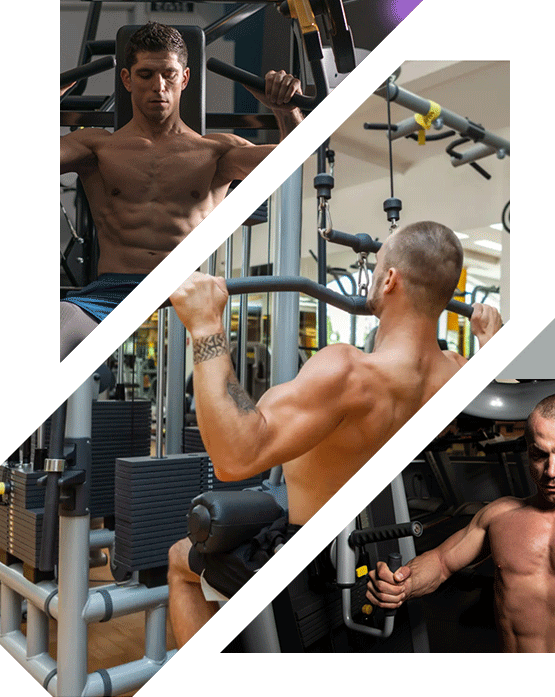
How to Judge the Quality of Arm Curl Machine Suppliers
Reputation and Reviews – Assessing Supplier Credibility
Before committing to a supplier, it’s essential to evaluate their reputation in the fitness industry. A supplier with a strong track record is more likely to provide reliable and high-quality arm curl machines.
- Check Customer Testimonials: Look for online reviews on trusted platforms, such as Google Reviews, Trustpilot, or fitness equipment forums.
- Industry Reputation: A supplier with a long history in the market is more likely to offer proven, high-quality products.
- Case Studies and References: Ask for references or case studies showcasing past clients who have successfully used their equipment.
- Social Media Presence: Suppliers active on platforms like Instagram, LinkedIn, or Facebook often showcase real customer feedback, product updates, and industry involvement.
By evaluating reviews and testimonials, you can avoid unreliable suppliers and choose one with proven success in the industry.
Product Quality and Durability – Ensuring Long-Term Performance
The quality of an arm curl machine directly impacts user experience, longevity, and safety. Poorly built machines may lead to breakdowns, injuries, and frequent replacements, costing more in the long run.
- Material Quality: Ensure machines are made from high-grade steel, reinforced frames, and corrosion-resistant coatings to withstand regular use.
- Mechanical Integrity: Check for smooth operation, durable pivot points, and ergonomic design for optimal muscle engagement.
- Certification and Safety Standards: Look for suppliers that comply with international safety and quality standards, such as ISO, CE, or other industry-specific certifications.
- Warranty and Guarantee: A reliable supplier offers warranties on parts and frame, ensuring long-term reliability and post-purchase support.
By prioritizing strong, well-built machines, you ensure durability, safety, and a long-lasting investment.
Customization Options – Meeting Your Gym’s Specific Needs
A good supplier should offer customization options that align with your gym’s branding, space constraints, and user preferences.
- Adjustable Resistance: Machines with variable resistance settings cater to users of all fitness levels.
- Ergonomic Features: Look for adjustable seats, arm pads, and grip positions to enhance user comfort.
- Space-Saving Designs: If space is a concern, consider compact or multi-functional machines that maximize efficiency without compromising performance.
- Branding and Aesthetics: Some suppliers offer color choices, logo placements, and additional branding features to match your gym’s style.
Customizable options enhance the user experience and make the equipment a perfect fit for your gym’s needs.
Pricing and Value – Balancing Cost and Quality
While price is a crucial factor, choosing the cheapest option can lead to compromised quality. Instead of focusing solely on cost, consider the overall value a supplier provides.
- Compare Prices and Features: Ensure you are getting a fair price for the machine’s durability, features, and included services.
- Beware of Extremely Low Prices: Some suppliers cut costs by using subpar materials or lack proper safety certifications.
- Bulk Purchase Discounts: If you are buying multiple machines, check for wholesale pricing, discounts, or financing options.
- Long-Term Cost Considerations: A higher upfront investment in a quality machine often leads to lower maintenance costs and longer lifespan, saving money over time.
By weighing price against durability, features, and support, you can make a cost-effective decision without sacrificing quality.
Customer Support and After-Sales Service – Ensuring Ongoing Assistance
Even high-quality gym equipment may require maintenance, repairs, or user guidance. A reliable supplier should offer comprehensive support services to keep your machines in top condition.
- Installation Services: Some suppliers offer free or discounted installation, ensuring the machines are set up correctly and safely.
- Technical Support: Responsive customer support helps troubleshoot any mechanical or operational issues.
- Maintenance and Spare Parts Availability: Suppliers should offer replacement parts and servicing options to extend the lifespan of your machines.
- Training Resources: Some high-end suppliers provide user manuals, video tutorials, or even on-site training to help staff and gym members use the equipment correctly.
Strong after-sales support ensures smooth operation, minimal downtime, and long-term satisfaction with your purchase.
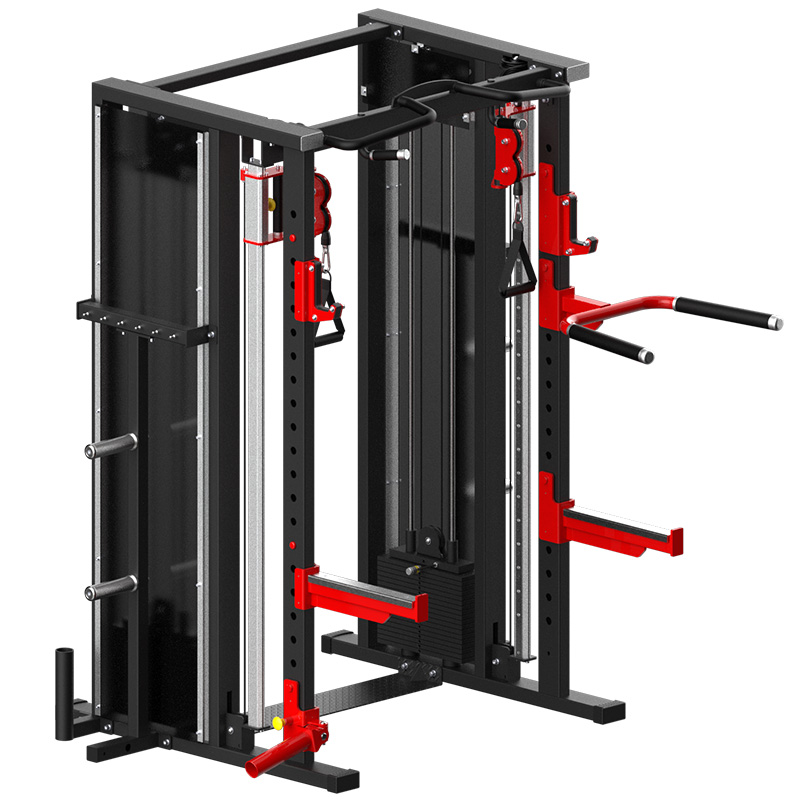
Are Arm Curl Machines the Same as Dumbbell Curls?
Both arm curl machines and dumbbell curls are highly effective exercises for building biceps strength and size. While they target the same muscle group, they differ in terms of stability, range of motion, resistance control, and overall effectiveness. Understanding these differences can help you determine which exercise best suits your fitness goals and experience level. Below is a detailed comparison of arm workout gym machines and dumbbell curls.
Stability and Support
One of the key differences between arm exercises gym equipments and dumbbell curls is the level of stability and support they provide.
Arm Curl Machines
- Offer a fixed movement pattern, which minimizes the need for stabilization.
- Provide a padded armrest that helps isolate the biceps by preventing unnecessary shoulder or back movement.
- Reduce the risk of poor form and injury, making them ideal for beginners or those recovering from injuries.
Dumbbell Curls
- Require more stabilization from the core, shoulders, and forearms since the movement is not guided.
- Engage additional muscle groups to maintain balance and proper execution.
- Can be challenging for beginners, as improper form may lead to excessive swinging and reduced biceps activation.
Overall, if you are looking for a strict, isolated movement, the arm curl machine is ideal. However, if you want to improve overall stability and coordination, dumbbell curls are a better option.
Range of Motion
The range of motion plays a crucial role in muscle activation and development.
Arm Curl Machines
- Provide a controlled range of motion, ensuring that users perform each rep with consistent form.
- Limit the potential for excessive arm swinging or compensatory movements that reduce biceps engagement.
- May restrict natural movement patterns, which can slightly limit the activation of secondary muscles.
Dumbbell Curls
- Allow for a greater range of motion, letting the user extend the arms fully and contract the biceps more effectively.
- Offer variations in movement, such as supinated curls (palms up), hammer curls (neutral grip), and alternating curls, which target different parts of the biceps.
- Encourage a more natural movement pattern, as opposed to the fixed arc of the machine.
If full range of motion and functional movement are priorities, dumbbell curls may be preferable. However, for strict form and controlled muscle engagement, the arm curl machine is beneficial.
Adjustable Resistance and Progression
Both exercises allow for progressive overload, but the way resistance is adjusted differs significantly.
Arm Curl Machines
- Allow for precise resistance adjustments using a pin-loaded weight stack or plate-loaded mechanism.
- Make it easy to increase or decrease weight in small increments, ensuring gradual progression.
- Offer a consistent level of resistance throughout the movement, reducing the chances of imbalance between arms.
Dumbbell Curls
- Require manual weight changes, which can be less precise and more time-consuming.
- May lead to imbalances if one arm is stronger than the other, as each arm must stabilize the dumbbell independently.
- Allow for advanced training techniques, such as drop sets, forced reps, and different grip variations, which can enhance muscle development.
For structured and easily adjustable resistance, arm exercise machines at gym are ideal. However, if you prefer freedom in weight selection and training variety, dumbbells provide more flexibility.
Which is Better?
The choice between an arm curl machine and dumbbell curls ultimately depends on your fitness goals, experience level, and workout preferences.
- Beginners: The arm curl machine is a great starting point due to its stability and controlled movement.
- Advanced Lifters: Dumbbell curls allow for a more natural movement, greater range of motion, and the opportunity to engage stabilizing muscles.
- Injury Recovery: The arm curl machine provides a safer, more controlled option for individuals recovering from injuries.
- Muscle Imbalances: Dumbbell curls help correct muscle imbalances, as each arm works independently.
For optimal results, incorporating both exercises into your workout routine can provide a balanced approach to biceps training, ensuring strength, stability, and muscle growth.
Benefits of Using Arm Curl Machines for Bicep Training
Incorporating an arm curl machine into your training routine provides a structured and effective way to develop bicep strength, muscle tone, and overall upper body performance. Unlike free weights, the guided motion and controlled resistance of an arm curl machine help reduce injury risk, improve muscle isolation, and enhance training efficiency. Whether you’re a beginner looking for a safe introduction to bicep training or an advanced lifter seeking progressive overload and consistency, an arm curl machine can be a valuable addition to your workout. Below, we explore the key benefits in detail.
Builds Upper Arm Strength – Enhancing Bicep Power and Stability
The primary purpose of the arm curl machine is to target and strengthen the biceps brachii, which are responsible for flexing the elbow and assisting in various pulling motions.
- Isolated Muscle Engagement: The machine’s fixed range of motion ensures that the biceps do most of the work, minimizing involvement from other muscle groups and maximizing bicep activation.
- Progressive Overload: With adjustable resistance, users can gradually increase weight over time, promoting muscle growth and strength development.
- Increased Stability: Unlike free weights, where form inconsistencies or poor control may lead to improper muscle activation, the machine guides movements properly, reducing the chance of muscle imbalances.
Stronger biceps contribute to improved performance in strength training, daily activities, and athletic movements that require upper body power.
Improves Muscle Tone – Sculpting and Defining the Biceps
Muscle definition is not only about size but also about consistent engagement and proper contraction. The arm curl machine helps shape and tone the biceps effectively.
- Consistent Tension: Unlike dumbbells, which may lose resistance at certain angles, the machine maintains constant tension on the biceps throughout the movement, ensuring a more effective muscle contraction.
- Controlled Range of Motion: The guided path prevents cheating (such as swinging the arms or using momentum), leading to better muscle definition over time.
- High Repetition Training: The machine is ideal for high-rep, low-weight training, which is essential for muscle endurance and toning.
By regularly using the arm curl machine, users can develop well-defined, sculpted biceps that contribute to an athletic and aesthetic physique.
Enhances Athletic Performance – Supporting Functional Strength
Strong biceps play a crucial role in various athletic and daily activities that require upper body strength, making the arm curl machine beneficial beyond just aesthetics.
- Improved Pulling Strength: Many sports, such as rowing, rock climbing, wrestling, and basketball, require strong biceps for effective performance.
- Better Grip and Arm Endurance: Bicep strength contributes to stronger grip endurance, which is essential for exercises like deadlifts, pull-ups, and wrestling movements.
- Reduced Muscle Fatigue: Training with an arm curl machine improves muscular endurance, helping athletes perform better in extended physical activities.
By incorporating the arm curl machine into training, athletes can enhance their performance in sports and physical activities that require bicep strength.
Low-Impact Exercise – Joint-Friendly and Safe for All Fitness Levels
One of the major advantages of using an arm curl machine is its low-impact nature, making it a safer option for individuals with joint concerns or mobility limitations.
- Minimized Strain on Elbows and Wrists: The guided movement and fixed path reduce excessive stress on the joints, which is beneficial for users recovering from injuries or with conditions like arthritis.
- Less Risk of Injury: Unlike free weights, where improper form can lead to muscle strains or joint discomfort, the machine ensures a controlled, safe movement pattern.
- Beginner-Friendly Design: New users can easily learn and perform bicep curls without worrying about balance, coordination, or improper form.
The machine provides a safe and effective way for individuals of all fitness levels to train their biceps without unnecessary strain on the joints.
Versatile Workouts – Expanding Training Possibilities
While the arm curl machine primarily focuses on the biceps, it also offers varied training options to keep workouts engaging and effective.
- Single-Arm Curls: Allows users to train each arm individually, helping correct imbalances and improve symmetry.
- Paused Reps and Tempo Training: Users can adjust rep speed and incorporate pauses at peak contraction, intensifying the workout.
- Drop Sets and Supersets: Easily adjust weight to perform drop sets, enhancing muscle endurance and hypertrophy.
With these training variations, the arm curl machine provides a comprehensive upper arm workout that can be tailored to different fitness goals.
The arm curl machine is a valuable tool for developing bicep strength, muscle definition, and athletic performance in a safe and controlled manner. Whether you’re looking to increase upper arm strength, tone your biceps, or improve sports performance, this machine offers a structured and joint-friendly solution.
For gym owners, incorporating an arm curl machine can attract more clients and provide a reliable training option that enhances their overall fitness experience. Whether you’re a beginner or an advanced lifter, this machine is an essential addition to any strength training routine.
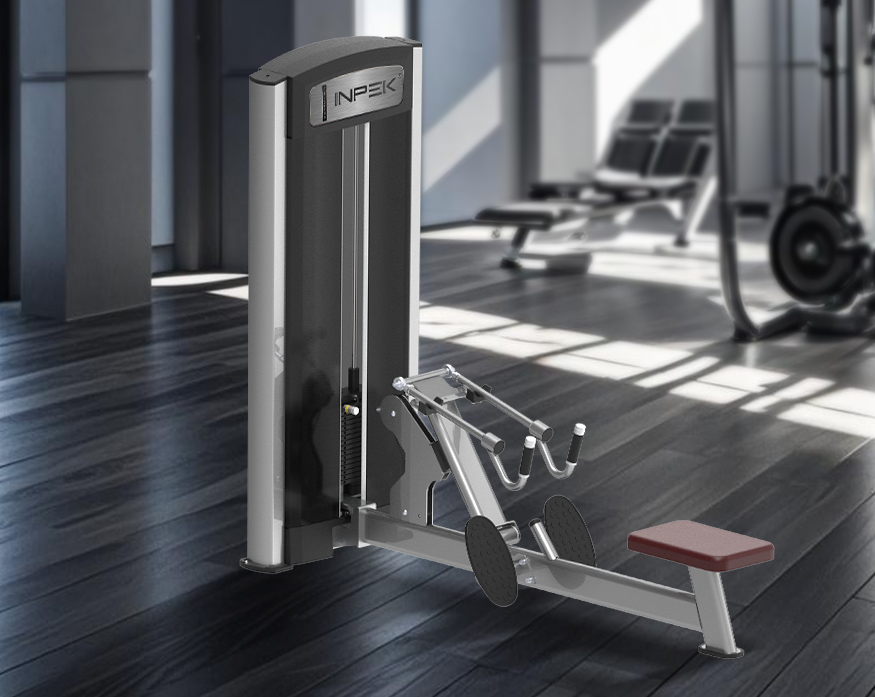
Features of Inpek Fitness Arm Curl Machines
Inpek Fitness arm workout machines are crafted to provide optimal performance, comfort, and safety, making them a valuable addition to any gym. These machines are built with advanced features designed to enhance the user experience, promote efficient training, and support both novice and experienced lifters. Below, we explore the standout features of these machines in greater detail to give you a clear understanding of what sets them apart.
Adjustable Resistance
The adjustable resistance feature is essential for progressing in your arm workout routine and ensuring that users of all fitness levels can benefit from the machine.
Customizable Weights
- The resistance system allows for easy adjustment of the weight, making it ideal for both beginners and advanced users who want to challenge themselves with progressive overload.
- Whether you’re aiming to build endurance or increase strength, the machine’s simple weight adjustment enables users to tailor their workout intensity.
- This flexibility ensures that the machine can grow with you as you become stronger, helping you to reach your fitness goals more effectively.
Ergonomic Design
The ergonomic design of Inpek Fitness arm exercise machine is created to ensure comfort, support, and proper alignment during use, enhancing both safety and effectiveness.
User-Centric Features
- The adjustable padding and back support allow users to customize the machine to fit their body size and shape, ensuring a secure and comfortable fit for people of all statures.
- The seated position helps minimize strain on the lower back, allowing the focus to remain on the biceps while preventing discomfort or injury.
- The design also promotes optimal posture during exercises, improving muscle engagement and reducing the risk of poor form.
Heavy-Duty Frame
Durability is a critical factor in selecting gym equipment, and Inpek Fitness ensures that their arm curl machines can stand up to the demands of high-use environments.
Sturdy Construction
- The arm curl machines are built with premium steel, providing a robust and stable frame that can withstand the wear and tear of commercial gym settings.
- This heavy-duty construction ensures long-lasting performance, making it a reliable piece of equipment that can handle intense workouts day in and day out.
- The reinforced structure helps maintain the integrity of the machine, ensuring safety for users while enhancing the overall longevity of the product.
Smooth Glide Mechanism
A smooth and consistent movement is essential to maintaining proper form during any exercise. The smooth glide mechanism built into Inpek Fitness arm machines at the gym provides just that.
Effortless Movement
- The machine’s glide system ensures that users can perform curls with fluid and uninterrupted motion, allowing them to focus on muscle contraction and extension.
- This seamless movement minimizes discomfort or jerky motions, helping users engage the biceps more effectively and reducing the risk of injury due to sudden movements.
- With precision engineering, the glide mechanism also prevents wear and tear, ensuring smooth functionality for the machine’s entire lifespan.
Safety Features
Safety is a top priority, especially in high-intensity workouts, and Inpek Fitness has designed their arm curl machines with several features to minimize the risk of accidents.
Enhanced Protection
- Safety locks prevent the weights from shifting or falling unexpectedly, keeping users safe while performing exercises.
- The non-slip footplates ensure that users maintain a stable position while working out, preventing slips or accidents.
- Additionally, the arm curl machines have been designed with intuitive controls that allow users to focus on their movements without worrying about equipment malfunction or instability.
Inpek Fitness gym equipment for arms are designed with a thoughtful combination of features to provide comfort, safety, durability, and precision. Whether you’re aiming for strength building or increasing endurance, these machines offer a reliable and customizable option for your fitness journey. With adjustable resistance, ergonomic design, and advanced safety features, they are the perfect choice for anyone seeking an efficient and effective arm workout.
FAQs About Arm Curl Machines
Is an arm curl machine effective?
Yes, an arm curl machine is an effective way to build and strengthen the biceps. The guided movement of the machine ensures proper form, making it ideal for beginners or those recovering from injuries. Unlike free weights, which require stabilizer muscles, the machine isolates the biceps, allowing for a more controlled contraction. This can be beneficial for muscle hypertrophy (growth) because it ensures constant tension throughout the movement. However, machine curls lack the functional benefits of free weights since they do not engage stabilizing muscles. To maximize bicep development, it’s best to combine machine curls with free-weight exercises like dumbbell or barbell curls for well-rounded strength and growth.
How many times a week should I do arm curls?
For optimal bicep growth, training 2-3 times per week is recommended. The biceps are a small muscle group, and they recover faster than larger muscles like the chest or legs. If your goal is muscle growth, aim for 3-4 sets of 8-12 reps per session. If you train biceps more frequently, ensure you’re varying exercises and intensity to avoid overuse injuries. Since the biceps are also activated in pulling exercises (like rows and pull-ups), direct bicep training more than 3 times a week is usually unnecessary.
What happens if I do arm curls every day?
Doing arm curls every day can lead to overtraining, which may slow muscle growth and increase the risk of injury. Muscles grow during recovery, so training them too often without rest can lead to fatigue, soreness, and even tendon strain. The biceps are already engaged in other upper-body exercises, so excessive direct work may hinder performance in compound movements like pull-ups or rows. If you want to train biceps daily, keep the intensity low, use different variations, and ensure proper rest and nutrition to support recovery.
What muscles do arm curls build?
Arm curls primarily target the biceps brachii, which has two heads:
- Long head (outer bicep) – contributes to bicep peak.
- Short head (inner bicep) – helps with overall thickness.
Additionally, curls also engage: - Brachialis – a muscle underneath the biceps that adds arm width.
- Brachioradialis – a forearm muscle that assists in the movement.
While bicep curls mainly target the front of the arm, they also indirectly engage the forearms and grip strength, depending on grip style and resistance.
What’s a good weight to bicep curl?
A good weight depends on your experience level and goals:
- Beginners: Start with 10-20 lbs (5-10 kg) for 12-15 reps.
- Intermediate lifters: Use 20-40 lbs (10-20 kg) for 8-12 reps.
- Advanced lifters: Can curl 40-60+ lbs (20-30 kg) for 6-10 reps.
The key is to use a weight that challenges you while maintaining proper form. If you can complete reps too easily, increase the weight. If you struggle to maintain form, decrease it.
How long does it take to see results from arm curls?
Results vary based on training intensity, consistency, and nutrition, but most people notice changes within 4-8 weeks. Beginners typically see strength improvements within 2-3 weeks, while muscle definition takes longer. For visible muscle growth, train consistently 2-3 times per week, eat a high-protein diet, and gradually increase weights. If body fat is high, results may take longer to become noticeable, so incorporating cardio and a clean diet can help reveal bicep definition.
Is it better to do bicep curls with dumbbells or a machine?
Both dumbbells and machines have their advantages:
- Dumbbells require more stabilization, engage supporting muscles, and allow for a fuller range of motion, making them better for functional strength.
- Machines provide a controlled movement, making them ideal for isolating the biceps and preventing momentum-based lifting.
For maximum bicep growth, incorporating both in your routine is ideal. Machines help increase volume safely, while dumbbells improve overall strength and coordination.
Do curls reduce arm fat?
No, bicep curls do not directly reduce arm fat. Fat loss happens through caloric deficit (burning more calories than consumed), which requires a combination of strength training, cardio, and a proper diet. While curls build muscle, they do not specifically burn fat in the arms. To reduce arm fat, focus on full-body workouts, calorie-controlled eating, and exercises like HIIT or resistance training that increase overall calorie burn. Over time, muscle definition will become more visible as fat decreases.
What is the difference between arm curl and bicep curl?
The terms arm curl and bicep curl are often used interchangeably, but there can be slight differences:
- Bicep curl specifically targets the biceps brachii using dumbbells, barbells, or machines.
- Arm curl is a broader term that may refer to any curling movement targeting the biceps, brachialis, and forearms (e.g., hammer curls or preacher curls).
In most gym settings, bicep curls and arm curls mean the same thing, but context matters depending on the variation used.
Is it better to use dumbbells or machines for biceps?
Both have benefits, and the best choice depends on your goal:
- Dumbbells allow for a greater range of motion, recruit stabilizers, and improve muscle imbalances.
- Machines provide constant tension, controlled form, and a safer option for heavy lifting.
For muscle growth and strength, combining both free weights and machines is ideal. Dumbbells improve functional strength, while machines allow you to train with heavier loads safely. Beginners may benefit from machines initially, while advanced lifters should incorporate both for maximum growth.
Are single-arm curls better than double-arm curls?
Single-arm curls and double-arm curls both have benefits, and which is better depends on your goals.
- Single-arm curls allow for better focus on each bicep, help correct muscle imbalances, and engage more stabilizer muscles since one side is working independently. They also let you concentrate on proper form without compensating with the stronger arm.
- Double-arm curls (using both arms at the same time) allow you to lift heavier weights, save time, and provide more balanced muscle engagement.
For maximum bicep growth, it’s best to incorporate both into your routine. Start with double-arm curls for heavier lifting and finish with single-arm curls for isolation and control.
Are hammer curls better than bicep curls for bigger arms?
Hammer curls and bicep curls both contribute to bigger arms, but they target muscles differently:
- Hammer curls primarily work the brachialis, which lies under the biceps and adds thickness to the arm. They also heavily engage the brachioradialis (forearm muscle), helping develop overall arm size.
- Bicep curls directly target the biceps brachii, emphasizing the peak and overall shape.
If your goal is thicker arms, hammer curls should be a priority. However, for peak development and definition, traditional bicep curls are essential. For the best results, include both in your routine.
Does the arm blaster actually work?
Yes, the arm blaster can be effective for isolating the biceps and maintaining strict form. It locks your elbows in place, preventing momentum and shoulder involvement, which ensures maximum bicep activation. Many lifters use it to enhance mind-muscle connection and prevent cheating reps.
However, it may feel restrictive for some people, especially those with longer arms or shoulder mobility issues. While it’s not necessary for growth, it can be a useful tool for strict curls and bicep hypertrophy.
What is an alternative to the arm blaster?
If you don’t have an arm blaster, you can still achieve similar benefits by using:
- Preacher curls – Keep elbows fixed on a preacher bench for strict form.
- Wall curls – Stand against a wall to prevent swinging.
- Slow, controlled reps – Focus on strict form and avoid momentum.
- Incline dumbbell curls – This naturally prevents cheating by putting the biceps in a stretched position.
These alternatives help isolate the biceps effectively without needing specialized equipment.
What is the difference between an arm blaster and a regular curl?
The main difference is that an arm blaster forces strict form by keeping your elbows locked in place, while a regular curl allows more freedom of movement.
- Regular curls may involve shoulder movement or swaying, which can reduce bicep isolation if not performed with strict form.
- Arm blaster curls eliminate body movement, ensuring that the biceps do all the work.
For maximum bicep growth, both variations have value. The arm blaster is best for strict isolation, while regular curls allow greater weight progression and versatility.
Do no-equipment arm workouts work?
Yes, arm exercises without equipment are effective, especially for beginners.Bodyweight exercises that work the biceps and arms include:
- Chin-ups – One of the best bodyweight bicep exercises.
- Isometric towel curls – Pulling against a towel for resistance.
- Diamond push-ups – Engages the triceps and inner chest.
- Plank-to-push-up transitions – Strengthens the arms and shoulders.
While bodyweight exercises can help define and strengthen the arms, progressive overload (adding weight) is necessary for significant muscle growth.
How to do arm curls with dumbbells?
To perform a dumbbell arm curl correctly:
- Stand or sit upright, holding a dumbbell in each hand with a supinated grip (palms facing forward).
- Keep elbows close to your torso and shoulders relaxed.
- Slowly curl the dumbbells toward your shoulders, squeezing the biceps at the top.
- Lower the dumbbells in a controlled motion, fully extending the arms.
- Repeat for 8-12 reps, maintaining proper form.
To increase difficulty, use slow negatives, pause at the top, or try alternating curls for better focus on each arm.
Is preacher a curl machine?
Yes, the preacher curl machine is specifically designed for bicep isolation. It mimics the movement of preacher curls with a barbell or dumbbell but offers a guided motion for better control. The angled pad locks the arms in place, minimizing cheating and momentum, which helps maximize bicep activation.
However, preacher curls limit range of motion, so they should be combined with standing curls or incline dumbbell curls for full bicep development.
Can you build arms with just curls?
Curls alone can build bigger biceps, but for overall arm development, you need to train both biceps and triceps. The triceps make up about 60-70% of the arm’s mass, so only focusing on curls neglects a major muscle group.
For balanced arm growth, include:
- Curls (biceps) – Dumbbell, barbell, hammer curls.
- Triceps exercises – Dips, skull crushers, close-grip bench press.
- Compound movements – Pull-ups, rows, and presses engage both biceps and triceps.
If you only do curls, your arms may get bigger but lack balance and definition.
Do bicep curls burn arm fat?
No, bicep curls do not burn arm fat directly. Fat loss happens through caloric deficit (burning more calories than consumed), and targeted fat loss in one area is a myth (spot reduction).
To reduce arm fat, combine:
- Strength training (including bicep curls) to build muscle.
- Cardio exercises (HIIT, running, jump rope) to burn overall fat.
- Healthy eating habits to reduce body fat percentage.
As fat decreases, your biceps will become more defined and toned.
Should your elbows move when doing bicep curls?
No, your elbows should stay stationary during bicep curls. Moving the elbows forward shifts tension away from the biceps and engages the front delts, reducing the effectiveness of the exercise.
To maintain proper form:
- Keep elbows close to your torso.
- Curl only using your biceps, avoiding shoulder or back movement.
- Use controlled motions without swinging.
If your elbows move excessively, lower the weight and focus on strict form.
What Is the Most Effective Bicep Curl?
The most effective bicep curl depends on your goal, but preacher curls on an arm curl machine are highly effective for isolating the biceps. This variation prevents momentum and improper form, ensuring maximum tension on the biceps throughout the movement. Concentration curls and spider curls are also excellent for peak contraction, while cable curls provide constant tension. Hammer curls are ideal for building both the biceps and brachialis. For overall development, a combination of machine curls and free-weight variations is best. Using a slow, controlled tempo with a full range of motion will enhance biceps activation.
Are Bicep Curls Good or Bad for You?
Bicep curls are good when performed correctly but can be harmful if done improperly. Proper technique ensures biceps growth and arm strength while preventing strain on the wrists, elbows, and shoulders. Mistakes like swinging the weight, using excessive weight, or poor wrist positioning can cause injuries. The arm curl machine is a safe option because it provides stability and isolates the biceps, reducing the risk of injury. However, relying only on machines can limit stabilizer muscle development. To maximize benefits, use controlled movements, avoid excessive weight, and incorporate variations like dumbbell curls and hammer curls.
What Type of Arm Curl Is Best?
The best arm curl depends on muscle engagement and personal preference:
- Machine Preacher Curl – Best for strict isolation and full biceps contraction.
- Cable Curls – Provide constant tension for controlled movement.
- Hammer Curls (Dumbbells or Rope Attachment on Machine) – Target both the biceps and brachialis, adding arm thickness.
- Incline Dumbbell Curls – Stretch the biceps long head, helping with peak development.
For overall growth, a combination of machine curls and free-weight curls is ideal, ensuring balanced muscle activation.
What Is the Proper Arm Curl Machine Form?
- Adjust the seat so your elbows align with the machine’s pivot point.
- Keep your back straight and rest your arms comfortably on the pad.
- Grip the handles with a firm but relaxed grip.
- Slowly curl the weight up, keeping your elbows fixed in place.
- Pause at the top for a strong contraction before lowering under control.
- Avoid swinging or using momentum.
- Use a controlled tempo—about 2 seconds up, 3 seconds down.
Using proper form ensures maximum biceps activation and reduces injury risk.
What Curl Is Best for Biceps Growth?
For maximum biceps growth, the preacher curl machine is one of the best options because it prevents cheating and ensures full range of motion. Cable curls are also excellent as they maintain constant tension, leading to better muscle activation. Incline dumbbell curls effectively target the biceps long head, creating a well-developed peak. Hammer curls strengthen the brachialis, adding arm thickness. Using a variety of curls is key to building full, balanced biceps.
Which Curl Is Best for Forearms?
While biceps curls indirectly engage the forearms, reverse curls and hammer curls are the best for forearm development. Wrist curls and Zottman curls also target the brachioradialis, a key forearm muscle. The arm curl machine primarily works the biceps, but performing reverse-grip curls on a cable machine helps strengthen both the biceps and forearms.
What Curl Is Best for Inner Bicep?
To target the inner biceps (short head), wide-grip curls are best. These include:
- Wide-Grip Arm Curl Machine Curls – Keep hands wider than shoulder-width.
- Preacher Curls (Machine or Free Weights) – Forces strict form and inner biceps activation.
- Spider Curls – Provide peak contraction and isolation.
Including these variations ensures full inner-biceps development.
What Major Muscle Do Arm Curls Work?
Arm curls primarily target the biceps brachii, which has two heads:
- Long head (outer bicep) – Responsible for biceps peak.
- Short head (inner bicep) – Adds width and overall size.
Secondary muscles include the brachialis (under the biceps, adding arm thickness) and the brachioradialis (forearm muscle). Using different curls ensures balanced development of all these muscles.
Top 10 high-tech manufacturing hubs
End-to-end integrated manufacturing, fully integrated recycling production line
You see more than just a factory
Intelligent steel pipe production line
Next generation laser cutting technology
Intelligent pipe bending process
Intelligent mechanical welding
New generation spraying process system
Delivering superior quality through pre-assembled solutions
Our Valued Clients







Collaborate with Inpek Fitness Experts for Your Commercial Gym Projects
Looking to enhance your gym with premium equipment? Have inquiries or ideas? Complete the form below to engage with our expert team. We’ll work with you to realize your fitness facility goals efficiently and effectively.

